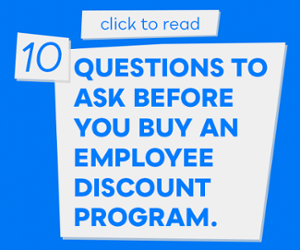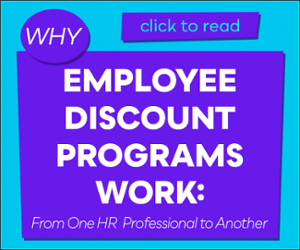It's safe to say that all vacations are not created equal.
My friend, "Emily," and her colleagues finished 2023 with record-breaking achievements. Their reward? A cruise for the entire staff. Everyone was elated. Emily in particular - because after a grueling Q4, my friend was in dire need of some time away from the grind to recharge.
But Emily's excitement faded when her boss let her know that they'd paid for internet service on the cruise ship "so she could stay on top of her work" while they were away.
So much for a vacation.
Instead of feeling recharged, Emily came back even more deflated and demotivated than she was before they left. On top of arranging childcare and everything that comes with leaving her kids while she and her husband were on "vacation", she'd worked a little every day and never fully unplugged.
Unfortunately, she's not alone. Research shows that 49% of American employees work at least one hour per day while they’re on vacation. And nearly one-fourth (24%) work three or more hours per day. It’s one of the reasons that so many employees are burned out and utterly defeated at home and the office. But it doesn’t have to be this way.
Far too many employers are missing out on the impactful benefits that can come from employee vacations and it’s costing them in profitability.
Why Do Employees Need Vacations?
Research suggests that burnout could be responsible for 40% of employee turnover. Consequently, allowing staff to be overworked and under-charged can be downright dangerous in some industries.
When asked why they don’t vacation more often, many employees cited work-related matters – with their number one hang-up being a fear of returning to a mountain of work. This was followed by fear of being seen as replaceable, wanting to show job dedication and working within a company culture that discourages time off.
On the other hand, experts agree that generous amounts of PTO and a culture that encourages its usage are among the most influential perks in keeping their employees happy and engaged at work.
So, just what can some time away from the daily grind actually do?
1. Vacations Improve Physical and Mental HealthResearch suggests travel is good for your health in more ways than one. Both men and women who vacation regularly enjoy better cardiovascular health than those who travel only every five to six years. In addition, a hiatus from everyday life leads to better sleep and less stress.
 In addition to the physical benefits, vacation is often a source for improved mental health. A number of studies indicate many people find more joy spending their money on experiences rather than things. These experiences have proven to enhance creativity, strengthen relationships and boost overall happiness not just while on vacation but after returning to work as well.
In addition to the physical benefits, vacation is often a source for improved mental health. A number of studies indicate many people find more joy spending their money on experiences rather than things. These experiences have proven to enhance creativity, strengthen relationships and boost overall happiness not just while on vacation but after returning to work as well.
On top of the vacation itself, even the planning can boost morale. In fact, a remarkable 87% of employees who plan vacations ahead of time report being happy with their workplace.
2. Vacations Increase Productivity in the Office
A variety of studies indicate that, in many cases, vacationing employees are great for the bottom line. Employees who take time away to recharge return to work with more energy and innovation to invest in the company’s success. A whopping 70% of employees who regularly take a week-long summer vacation say they’re driven to contribute to their organization’s success, compared with 55% of those who don’t.
In another study, Project: Time Off found that the best workers are those that utilize the majority of their vacation time. They came to this conclusion by assuming that employees that perform at higher levels are more likely to receive a raise or bonus. Of employees who used fewer than 10 of their vacation days per year, only 34.6% received a raise or bonus over a 3 year period. Meanwhile, nearly double (65.4%) of those who took more than 10 days off received a raise or bonus.
How Employers Can Support Vacations
At the end of the day, it’s up to each employee whether or not they take time off and exactly how they spend those days. Employers nonetheless have an important choice to make. They can either help facilitate a healthy work-life balance by supporting their employees’ vacation goals, or they can be the motivation-draining reason that employees long to get away in the first place.
Here are a few ways employers can help support employee vacations and, in turn, reap the rewards that come from them.
1. Create systems for handling tasks while employees are out.While being down an employee isn’t ideal for production, neither is having a bogged-down workforce. In order to maintain optimum productivity levels, employees need breaks.
Whether it’s distributing their workload among teammates or sending tasks to their manager while they’re out, each employee should know the company has a process for handling procedures during their time away.
2. Take vacations yourself.Managers ought to lead by example – and showcasing a healthy work-life balance is no different. I had a leader early in my career that spoke openly about his life-enhancing vacations and then would encourage me to save for similar trips. Those conversations went a long way in helping me understand I had his full approval in using my PTO to unplug.
A leadership team that rarely steps away from the office creates a culture where employees fear escaping for their own personal R and R.
3. Offer travel stipends.A couple years ago the leaders at Access put their money where their mouth is and rolled out an employee perk that supports our company’s money-saving, life-enhancing mission. Every year, Access will reimburse each employee up to $500 for personal travel expenses.
Of course, not every employer can afford to send its entire workforce on a trip each year. It’s a little easier for us, thanks to our employee discounts with hundreds of thousands of providers worldwide. But we did it because not only do we take pride in our copious holiday and PTO policies, we wanted to send a clear message to employees to USE THOSE DAYS.
4. Introduce Lifestyle Spending Accounts.A lifestyle spending account can help travel feel more accessible by allocating funds specifically for those expenses. LSAs are a financial tool that’s becoming increasingly popular as an employee benefit. With a variety of options for employers and/or the employees to directly contribute to the account, it’s an easy way for people to budget and save for a vacation.
This approach allows travelers to enjoy their trips without worrying about exceeding their budget or dipping into other funds. It also helps them plan ahead better because they’re able to more accurately gauge their savings progress.
5. Incentives and bonuses.
It’s fairly common for companies to sponsor trips for sales professionals who meet or exceed their annual quotas. However, travel rewards don’t need to be restricted to sales divisions. And they don’t need to be an entire trip.
For example, my husband’s company holds sporadic contests or events where winners earn a free night in a hotel of their choice. They also reward superior performance with a couple extra hours of PTO every once in a while. This tactic encourages focus and dedication in the office by issuing incentives that provide meaningful experiences away from work.
once in a while. This tactic encourages total focus while in the office by issuing incentives that provide meaningful experiences away from work.
 6. Facilitate travel discounts.
6. Facilitate travel discounts.
Last month my family and I saved hundreds of dollars on flights and hotels for a 10-day Caribbean getaway thanks to my company discount program. We secured rates significantly lower than other popular online travel booking engines advertised, and I had my employer to thank for it.
Employers can help soften the financial blow that comes from travel by negotiating discounts to help make trips more affordable. Whether through a formal employee discount program like Access Perks, contracting with a private label / white label travel platform, or through direct relationships with travel vendors, these savings can make a huge difference for employees.
Distance Makes the Heart Grow Fonder
Sometimes to really appreciate what we have, we need to spend a little time apart. Companies that provide ample PTO with the tools and resources to make vacations possible set themselves up for the best relationships with their employees.
Workers need to know they can take advantage of the PTO that attracted them to the company without worrying about coming back to a host of fires. Lisa Oyler, HR Director here at Access, said “Give employees plenty of time off to reboot and spend quality time with their families – but also set clear expectations that [they] don’t need to have their phones out or be ready to take a work call. Let them unplug!”
For a more in-depth look at the topic, check out the “PTO and Time Off” section of our Employee Benefits and Perks Statistics page. Or, learn more about the services available to help you create your own white label travel portal.






